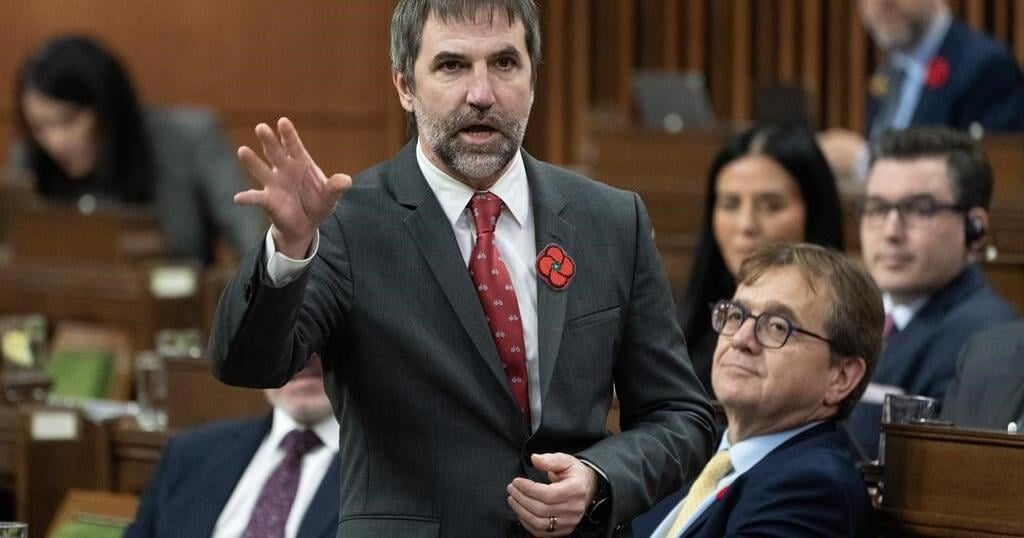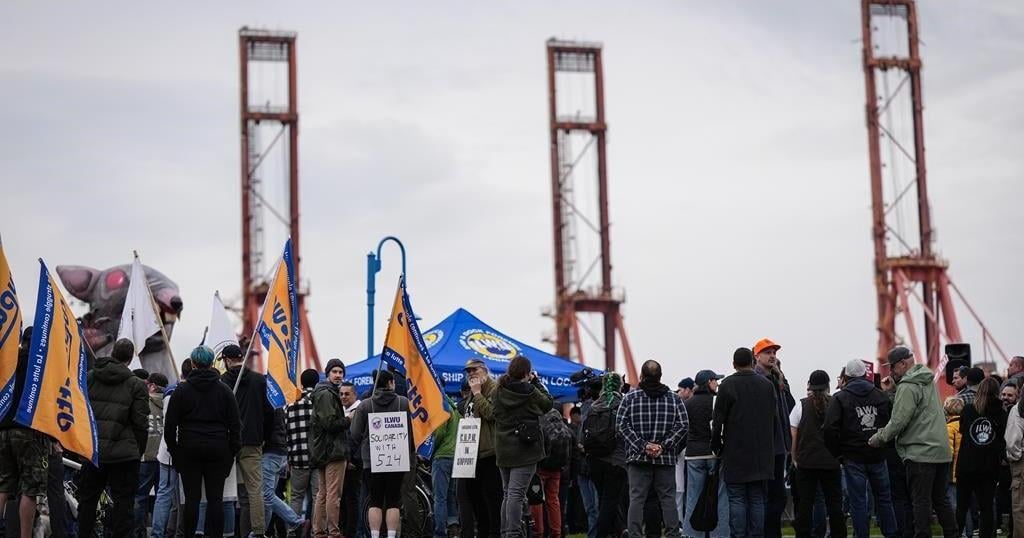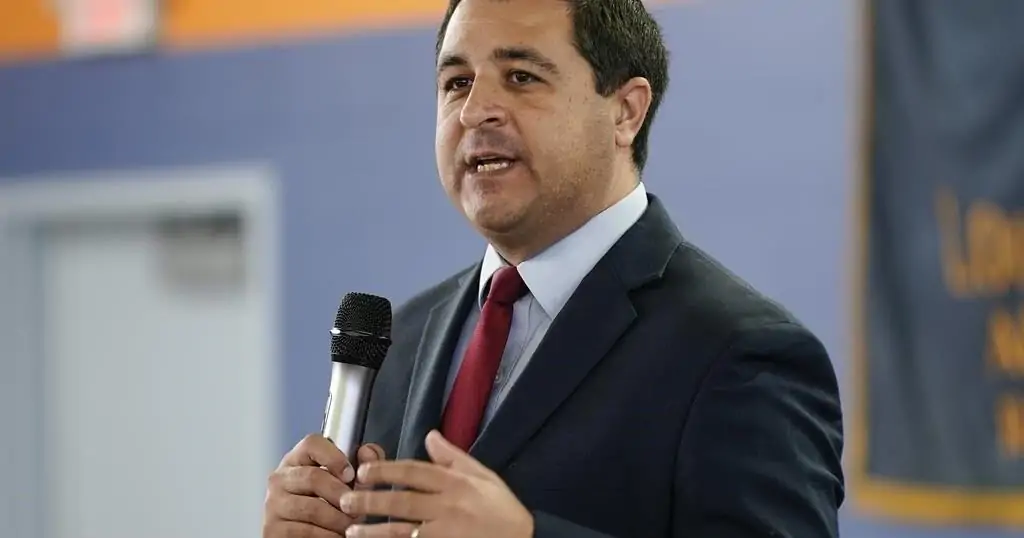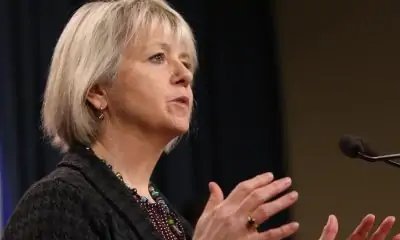Canada could be an important consensus builder at this year’s international climate negotiations, Environment and Climate Change Minister Steven Guilbeault said, while downplaying concerns that Donald Trump’s presidential election victory could hamper the talks.
“Our window to keep global average temperatures from surpassing 1.5 degrees Celsius is closing fast on us, so we need everyone to be pulling in the same direction,” Guilbeault said in an interview ahead of the talks.
Observers expect the negotiations in Azerbaijan over the next two weeks to be contentious. Countries are set to map out new goals on climate finance and work toward new national climate plans.
Catherine Abreu, a leading Canadian climate policy expert, says there are reasons to be cynical about the outcome of those talks.
Despite 30 years of negotiating, the world’s emissions are higher than ever, around 80 per cent of the global energy comes from fossil fuels, and oil lobbyists have come out in record numbers at recent summits, she said.
Yet, the talks are still “a really importance space,” said Abreu, director of the International Climate Politics Hub.
“The agreements that have been made in (this) space are the bedrock of all climate policy almost worldwide,” she said.
Here is a guide to this year’s international climate talks being held in Azerbaijan, known as COP29.
What is COP29?
It’s the 29th annual conference of the parties that signed the United Nations Framework Convention on Climate Change, set to run from Nov. 11 to 22.
Many of the world’s most consequential climate agreements have come out of those talks. The Kyoto Protocol, the first international agreement to set binding targets to reduce greenhouse gas emissions, was adopted at COP3 in Japan in 1997. Nearly two decades later in Paris, the world agreed to try to limit global warming to well below two degrees and aim for 1.5 degrees.
Canada has hosted the talks once, nearly two decades ago in Montreal.
This year, in Azerbaijan’s capital of Baku, the negotiations are expected to centre on a new climate finance goal. In short, negotiators are deciding how much money wealthy countries, which have historically contributed the most planet-warming emissions, should pledge to other countries to help them tackle climate change.
What are Canada’s priorities?
Two of Canada’s major priorities are expected to be reaching an agreement on that new climate finance goal and pushing other countries to come up with ambitious national climate plans.
Under the Paris agreement, countries have to update their national climate plans every five years, and the next round of updates is due in 2025.
Julie Segal, a climate finance policy analyst, says those two priorities are connected. The “litmus test” for success this year will be whether Canada and other wealthy countries pledge a finance goal that can properly bankroll ambitious climate plans.
“Canada should be a player, setting a high bar, saying, recognizing that wealthy countries like our own should be supporting more vulnerable countries in the climate transition,” said Segal, senior manager for climate finance at Environmental Defence, a Canadian advocacy group.
Several assessments have suggested the new climate finance goal could surpass $1 trillion.
Canada has been a broker in previous climate finance talks. After developed countries agreed in 2009 to raise $100 billion annually by 2020 to support developing countries in the fight to tackle climate change, Canada was tapped as one of the countries to help mobilize that financing.
The environment and climate change minister said he’d be happy for Canada to recast its role as a “bridge builder” at these talks.
While he would not comment on some of the proposed dollar figures for the new goal, he underlined the importance of ensuring developing countries can easily access financing.
Who’s going?
While it’s still a huge guest list, the number of COP participants has drastically declined since last year. Initial figures released late last month put the registration at 32,000 participants, compared to the roughly 85,000 people who attended last year’s talks in Dubai.
Canada’s delegation will be led by Guilbeault and includes the country’s climate change ambassador, alongside its chief climate negotiator.
The premiers of Alberta and Saskatchewan are not expected to attend. Both attended last year’s talks, alleging the federal government would not properly promote their provincial interests on the world stage.
Alberta says it’s sending its environment minister this year. Saskatchewan, which spent an estimated $765,000 to host its own event space at last year’s conference, has not announced any plans to attend. The province held a general election last month and inquiries to government spokespeople did not receive a response before this story’s deadline.
How will the U.S. election outcome shape the talks?
Donald Trump’s victory is expected to loom over the conference.
Trump, who has called climate change a hoax and targeted rollbacks of key U.S. climate policies, withdrew from the Paris agreement during his previous term and signalled that he would do so again.
While Trump won’t take office until January, countries intent on derailing ambitious climate agreements in Azerbaijan may be empowered by his return, said Bill Hare, CEO of Climate Analytics, a Berlin-based climate think tank.
“A lot of work has been done to, in the event of a Trump election, make sure the system doesn’t collapse, but still, it will weaken pressure for a positive outcome in Baku,” he said.
Guilbeault played down those concerns, underlining that President Joe Biden’s administration was still representing the U.S. at the talks.
“I’m very confident that the U.S. will continue to be the important partner that it’s been for these negotiations now for many, many years,” he said.
Guilbeault suggested Elon Musk, the billionaire Trump backer and Tesla chief executive, may help influence the president-elect to embrace electrification.
A brief glossary of climate policy jargon to help navigate COP29
Catherine McKenna, Canada’s former environment minister, said climate policy conversations can be dominated by acronyms and jargon.
“It’s hard to express the urgency or the opportunity on climate when we talk in really weird ways,” she said.
To help cut through the jargon, here are some common acronyms and phrases expected to come up at this year’s talks.
NCQG: The new collective quantified goal. That’s the name for the new climate finance goal set to be at the heart of this year’s negotiations.
NDC: Nationally determined contributions. That’s what the United Nations calls national climate plans that have to be updated every five years.
Net-zero emissions: This describes the scenario where planet-warming emissions that are added to the atmosphere can otherwise get absorbed, leaving the balance at zero. It doesn’t mean all emissions would stop entirely, but it means that any greenhouse gases that humans emit could be trapped by carbon-absorbing forests and wetlands, for example. Canada has a legislated goal to achieve net-zero emissions by 2050.
IRA: Inflation Reduction Act. That’s the U.S. law that earmarked $369 billion in incentives for clean energy and climate programs. Trump has said he’d hold back unspent funds.
This report by The Canadian Press was first published Nov. 10, 2024.



















